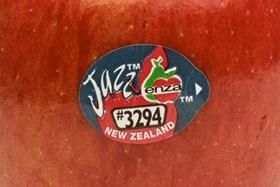
German trading and services conglomerate BayWa faced a tougher fruit market in the past year mainly as a result of the Russian ban on EU fresh produce, but saw pre-tax earnings in its fruit business unit increase to €25.6m from €21.6m in 2013, mainly as a result of its acquisition of New Zealand company Apollo Apples towards the end of 2014.
The increase in profitability came despite a slight downturn in revenues from the fruit division – €563.9m compared with €567.7m in the previous 12 months – and contributed to an overall “satisfactory result” of €147m EBIT (down from €222m in 2013) on sales of €15.2bn (2013: €16bn) in its agriculture, energy and building materials businesses.
After a financial year shaped by an extremely tough climate in the agricultural trade market, BayWa’s chief executive Klaus Josef Lutz explained that an operating EBIT of €186.4m in 2014 (2013: €195.6m) has been reduced further by “non-operating factors”, primarily due to the one-off effect of profits made from major property sales in 2013.
“A lower oil price, an extremely mild winter and, above all, record-breaking harvests and sharp falls in fruit and grain prices impacted our result,” he told a press conference to discuss BayWa’s annual results for 2014.
BayWa had managed to recover, Lutz continued, thanks to an “extremely positive” result in regenerative energies and in agricultural equipment business, together with a strong fourth quarter.
“This result would not have been possible without our international expansion, as almost 44 per cent of our operating EBIT originated from international growth business,” he said. “We are now looking firmly to the future.”
He added: “We intend to match the progress made in previous years by further expanding our international business both in the agricultural sector and in renewable energies.”
Agriculture under pressure
In agriculture, BayWa’s revenues for 2014 stood at €10.1bn, against €10.7bn in 2013, with EBIT of €113.4m (2013: €123.5m).
In agricultural trade and the fruit trade, it said, the financial year was dominated by a sharp fall in produce prices, as harvests of both grain and fruit were extremely high worldwide.
“[The] fruit trade in Germany was also impacted by the Russian embargo on Polish apples. Low prices had a corresponding effect on margins,” the company noted.



